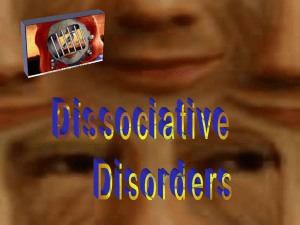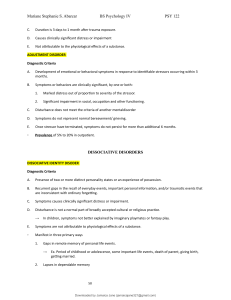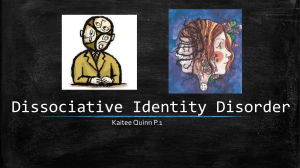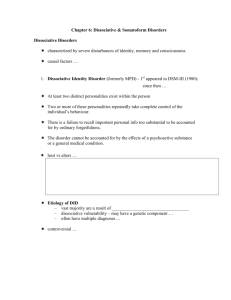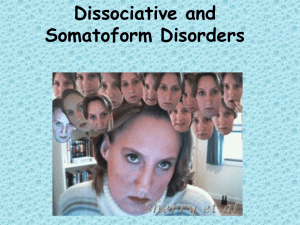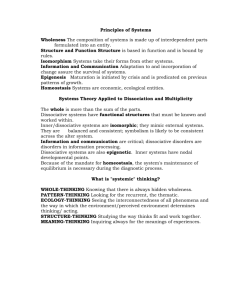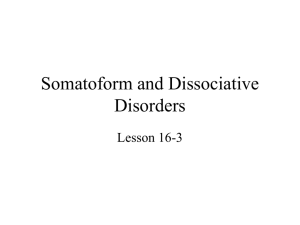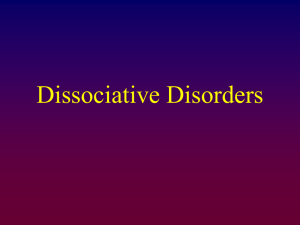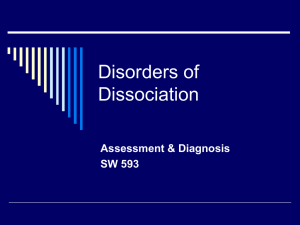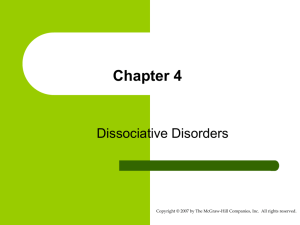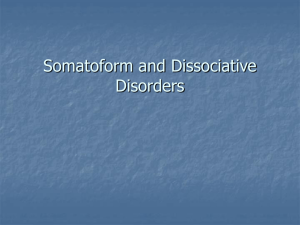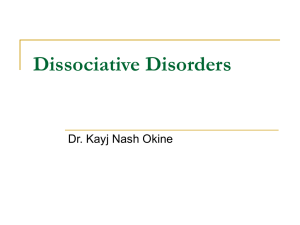4- dissociative disorders dsm 5
advertisement
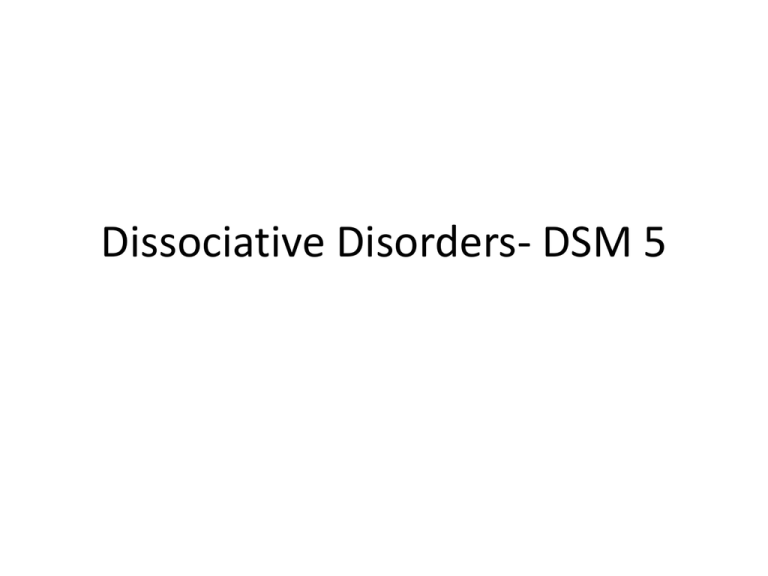
Dissociative Disorders- DSM 5 Dissociative identity disorder • A. Disruption of identity characterized by two or more distinct personality states. This involves marked discontinuity in sense of self and sense of agency, accompanied by related alterations in affect, behavior, consciousness, memory, perception, cognition, and sensorymotor functioning. Dissociative identity disorder • C. The symptoms cause clinically significant distress or impairment in important areas of functioning. • D. Religious practice is omitted, as is normal fantasy play in children. • E. Physiological effects from a substance are omitted. (DSM-5 2013 ) Dissociative amnesia • A. An inability to recall important autobiographical information, usually of a traumatic or stressful nature, that is inconsistent with ordinary forgetting or neurophysiological damage or toxicity that prevent from memory storage or retrieval. Because in dissociative amnesia the memory is already stored and is reversal • Localized Amnesia – The inability to recall events occurring few hours after an accident • Selective amnesia – The inability to remember certain details associated with a traumatic event for a specific period of time • Systematized – Inability to remember events related to specific category of information such family members or places. (forgetting childhood experiences, or all memories related to one’s own family) • Generalized – Loss of memory about one’s own identity, they wonder in the street not knowing who they are and might be found by the police Dissociative identity disorder • B. The symptoms cause clinically significant distress or impairment in important areas of functioning. • C. The disturbance is not attributed to Physiological effects from a substance (drug abuse or medication) or neurological medical condition (brain injury) • D. the disturbance is not explained by other dissociative disorders, PTSD, ASD, somatic symptoms disorder • Duration of disturbance usually for 12 months and more in females than males • Common suicidal risk specially when amnesia remits and the person remembers all aspects of trauma Depersonalization/Derealization Disorder • A. The presence of persistent or recurrent experiences of depersonalization, derealization or both – 1. depersonalization: experience of unreality, detachment, or being an outside observer with respect to one’s thoughts, feelings, body, or actions, (perceptual alteration, distorted sense of time, emotional numbness) – 2. Derealization: experiences of unreality or detachment with respect to surrounding (individuals, objects are experienced unreal, dreamlike, foggy, lifless or visually distorted) Depersonalization/Derealization Disorder • B. During the disturbance the reality testing remains intact • C. The symptoms cause clinically significant impairment to social, occupational and other important areas of functioning • D. exclude physiological effects of substances (drug abuse or medication) and medical conditions • E. The disturbance is not explained by other mental disorders
